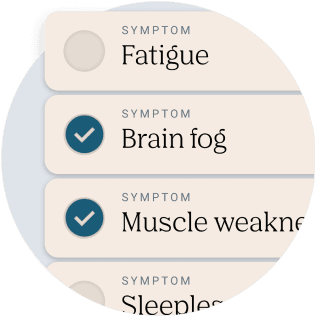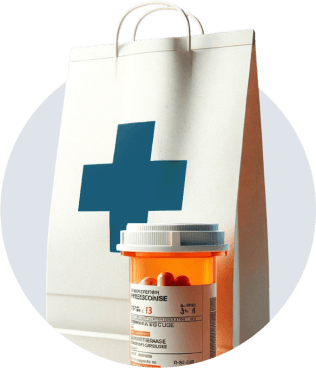
Say goodbye to lightheadedness and dizziness
Get access to a safe and clinician approved prescription for Midodrine.
Only pay if your prescription is approved
How does it work?
Access to medications as easy as 1-2-3




Pay zero fees if you're not approved.


Affordable Access to Midodrine
Key Benefits
Is Midodrine right for me?
Midodrine is particularly effective for:
- Dizziness and lightheadedness
- Fainting or near-fainting spells
- Blurred vision
- Weakness and fatigue
- Nausea
Patients with Long COVID, ME/CFS, and dysautonomia experiencing these symptoms may benefit from midodrine.
What Does the Research Say?
What People Are Saying About Their Experience with Midodrine
Safety Is Our Top Priority
llene S. Ruhoy
MD, PhD, Neurologist
Sarah Almilli
PharmD, APh., IA, Clinical Pharmacist
Stuart Malcolm
MD, Internist
Jennifer Curtin
MD, Internist
Safety Is Our Top Priority
1. All treatments, including pyridostigmine, are carefully reviewed by RTHM clinicians and pharmacists.
2. We use dosing protocols designed to minimize side effects and ensure safe use.
3. Comprehensive treatment guides are vetted by our expert clinical team.
As you navigate your health journey, we're here to provide safe and effective care.
llene S. Ruhoy
MD, PhD, Neurologist
Sarah Almilli
PharmD, APh., IA, Clinical Pharmacist
Stuart Malcolm
MD, Internist
Jennifer Curtin
MD, Internist